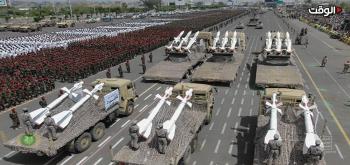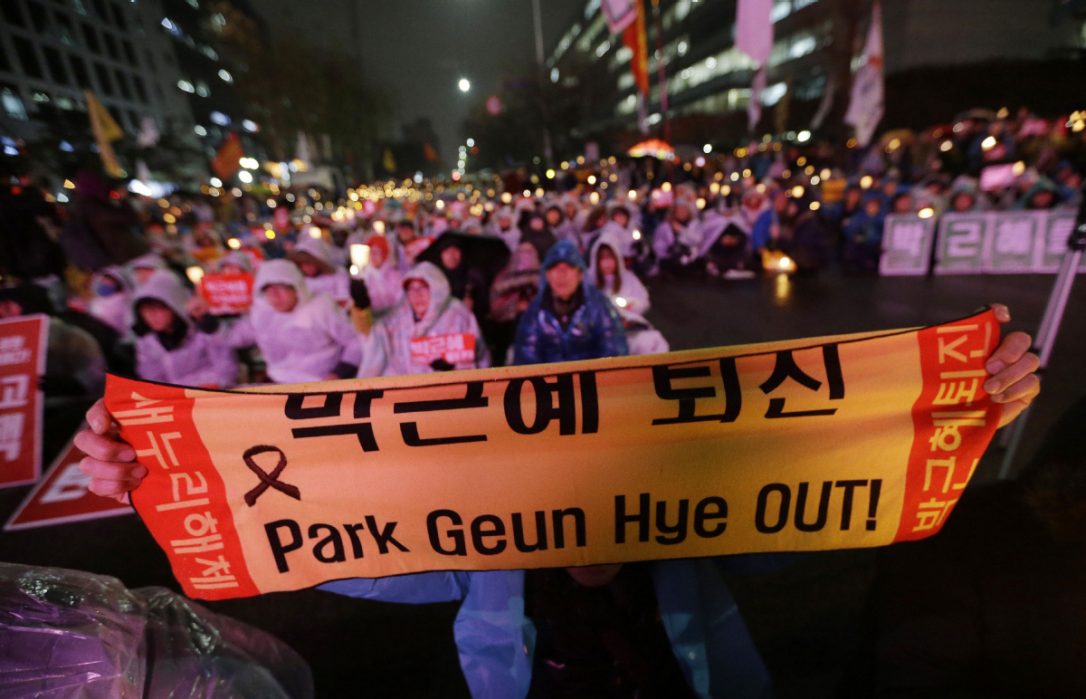Alwaght- The impeachment of South Korea's President Park Geun-hye has heightened uncertainty in the country and the volatile Korean Peninsula.
On Friday, South Korean Supreme Court removed Park after months of turmoil marked by nationwide protests after the country's first female president was accused of being part of a corruption.
Her ouster has polarized South Korea and she will almost certainly face a criminal trial now that she no longer enjoys immunity from prosecution. The historic impeachment comes at a time of increased tensions in the Asia Pacific region especially in the Korean Peninsula. The impeachment has also put in focus controversial US missile system known as Terminal High Altitude Area Defence (THAAD). The US apparently moved to install components of the system at a base outside Seoul on Tuesday before Park's impending downfall.
Immediately after the impeachment, South Korea's defence minister ordered the military to be on alert for possible North Korean provocations attempting to exploit "unstable situations at home and abroad."
In a video conference on Friday with military commanders, Defence Minister Han Min Koo said North Korea can make "strategic or operational" provocations at any time. Reaction by the North was unexpectedly muted with only straightforward announcement of the impeachment. This hints at Pyongyang's interest in improving relations with the next South Korean President.
May Elections, Implications for US Missile System
South Korean presidential election are slated to be held in early May with opinion polls indicating that the frontrunner is Moon Jae-in of the Minjoo Party, a former special forces soldier, pro-democracy activist and human rights lawyer. Interestingly, he was chief of staff of President Roh Moo-hyun, who committed suicide in 2009 after being questioned over graft allegations. Opinion polls put his popularity at 36.1 percent with closest rival, acting President Hwang Kyo-ahn trailing far behind at 14.2 per cent. Another probable candidate is Ahn Hee-jung also from Minjoo Party, the Governor of Chungcheongnam-do Province whose popularity is around 17 percent.
Moon is seen as warming up to North Korea and in December he pointed out that if elected, he was willing to visit North Korea ahead of principal ally, the United States. On the controversial THAAD missile defence system which is opposed by many South Koreans, Moon said it needed to be carefully handled as it would bring the South “both gains and losses”. He has previously said that his country should reconsider plans to deploy the US missile defence system. When the US rushed to install components of THAAD last Tuesday, Moon reiterated that any decisions on the deployment should have been left to the next government. "I don't understand why the government is doing it this way," Moon, the former leader of the main opposition Democratic Party of Korea (DPK), told reporters. "I believe the next government can make a rational decision that meets the interests of security and the economy through consultations with the US and China. Speeding up the deployment will only leave little room in diplomacy for the next government."
Washington-Seoul ties
If elected, Moon will seek to reduce tensions with China which have deteriorated because of the deployment of the THAAD anti-missile system. Therefore, Washington-Seoul ties will be headed to the rocks in the event of Moon's victory as he will seek to review the deployment of THAAD indicating that he will seek parliamentary approval.
There is an impending tug of war as the US Defence Department, Pentagon, spokesman Captain Jeff Davis has described THAAD as something that had already been decided upon between both nations and which was fully justified by the North Korean threat. He declined to comment on internal politics in Seoul.
Moon is expected to be boosted by South Koreans who have staged several protests against THAAD system with some filing a lawsuit against the country's Defence Ministry.
The current political turmoil in South Korea is bound to have implications in regional and international relations especially due to the explosive situation in the Korean Peninsula.



























